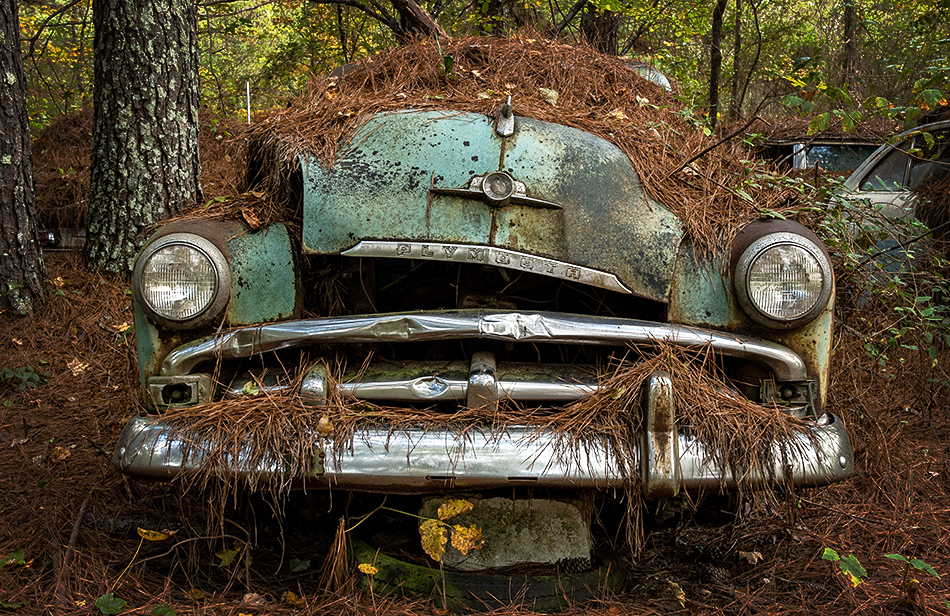
Old Car City, Georgia.
One of the reasons I love to teach workshops is to share some things I’ve learned about developing creativity. First, we need to develop our technical skills. You have to know how your camera operates, and maybe some advanced techniques, to help you bring your creative ideas to life in photographs. There are some who are very ‘left brained’, and mastering technical skills is easy for them. Then there are those ‘right brainers’ who seem to see the world different than most and produce very creative images…but they struggle learning camera craft. In the end, the best photographers are those who have mastered camera craft and are very creative.
No matter what mix of technical and creative you have, there is a terrific exercise you can do to improve your photography. Years ago I had an appointment with an editor to look at my work for a possible assignment. He told me to bring in my 40 best slides in two plastic vis sheets. When I went into the meeting, he took my two sheets of slides and laid them out on a huge light table. After pausing about 30 seconds, he proceeded to dissect my photography piece by piece, and in about 5 minutes told me exactly who I was a photographer. He told me what I did well, what I didn’t do well, what perspectives and lenses I liked, what subject matter really caught my eye…and then, most importantly, he told me what I needed to do to develop my creativity and stand out from the crowd. Wow! I needed to sit down! That meeting changed my approach in my own photography, and gave me a great tool to pass on to workshop participants who want to develop their creativity. Open up Lightroom, and examine your metadata.
Lightroom gives photographers enormous amounts of power to edit and critique our own work. When you open up the metadata search in LR, take a look at what camera you use the most. How about what lens you use? Next, click on the camera you use most, and then in the Text field, enter an aperture. How many images were shot at F8? What about F2.8? You will start to see trends in your shooting habits. I photograph a lot at F8 using my D850 and 70-200mm lens. So I do this pretty well, it’s my comfort zone. But what about exploring F2.8 and getting blurry backgrounds? In order to grow creatively, we need to take risks, make mistakes and try new things. Metadata will help you identify what you do well, and what you might want to try that is ‘outside the box.’
Another exercise is choose your 40 best images, and do a self critique (or even better, get an objective opinion). How many are horizontal versus vertical? Are there bright colors or subtle hues? Are there any people in the images, or all natural subjects? What mood and feeling consistently comes across? How many were taken at tripod level standing up versus fresh perspectives like on the ground or from a high vantage point? Editing your work is very important in developing your creativity and technical skills. Performing these exercises will help you identify your style, give direction in your work, and improve your photography.